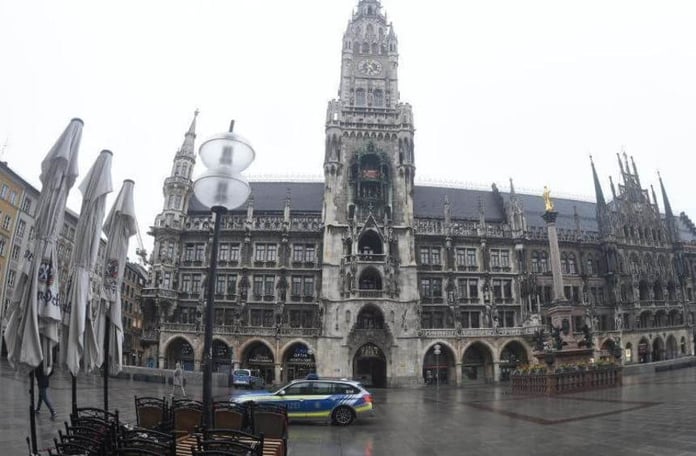
Munich (TEH) – The exit restrictions in Bavaria that have applied since March 21 due to the coronavirus will be extended until the end of the Easter holidays on April 19. Prime Minister Markus Soder (CSU) said in Munich on Monday.
So far, 14,437 people in Bavaria have tested positive for the new Sars-CoV-2 coronavirus, said Soder. To date, 133 patients infected with the virus have also died. “Everyone hurts incredibly.” Soder emphasized that the initial restrictions had initial effects, “the curve flattens out”. Currently, the number of infected people doubles every 5 days, before the measures the number doubled every 2.8 days.
With the extension, which Soder says does not mean tightening the measures, Bavaria is following the schedule that has also been in place nationwide for more than a week. The federal states had agreed with the federal government on the far-reaching encroachments on the freedom of the people in Germany. At that time, Bavaria had already implemented its own exit restriction, which led to different time limits. At the same time, the decision should also remove the discussion about a permanent end to the measures.
Chancellor Angela Merkel and Chancellor’s Office Helge Braun (both CDU) had recently made it clear that rapid easing of the contact restrictions for citizens is not yet in the room. However, the Lander are responsible for the specific regulations. Soder also recently warned against the premature end of the conditions and restrictions and thus directly contradicted his deputy Hubert Aiwanger (free voters).
Extensive exit restrictions have been in effect throughout Bavaria since March 21 to contain the coronavirus. Going into the fresh air is only legitimate if there are good reasons. These include the way to work, necessary shopping, visits to the doctor, but also “sports and exercise in the fresh air” – but only on your own or with the people you live within an apartment. In addition, all catering businesses must remain closed, except for take-away, delivery and drive-in offers.
Stores outside of the basic supply must also remain closed, and have been since March 18. Here, the government has also extended the deadline that would otherwise have expired on Monday until April 3. Like the initial restrictions, this is now also regulated in an ordinance.
The state government of Saarland has extended the exit restrictions up to and including April 20. “In view of the developments, we consider an extension of the measures in the convoy of the other federal states to be urgently required,” said Prime Minister Tobias Hans (CDU).
The Saarland reacted very early. “We can see the first signs of success, but the situation remains very serious due to the increasing number of infections.” If the measures were relaxed too soon, you risk a relapse. “If we do not act decisively now, we will start all over again. With today’s decision, we will ensure planning security beyond April 3, ”explained Hans.
The regulations in Saarland entered into force on March 21 and were initially limited to 14 days. There are an exit restriction and a clearly limited range of leisure activities.
In Brandenburg, too, the restrictions on going out are to be expanded by two weeks according to the plans of Prime Minister Dietmar Woidke (SPD). “The previously applicable stipulations, among other things, on staying in public space will be extended from April 6 to 19,” announced the State Chancellery on Monday in Potsdam. The cabinet will discuss this on Tuesday.
Government spokesman Florian Engels referred to the increasing numbers of people who are infected with the novel coronavirus in Brandenburg. “There is no need to ease up on efforts now.” Chancellor Angela Merkel and Chancellor Helge Braun (both CDU) had previously made it clear that there was no room for a quick relaxation of the restrictions.
Since Monday of last week, the Brandenburgers have only been allowed to go outside alone, with relatives from their own household or with someone outside the household at a distance of 1.5 meters. There are exceptions to entering public places such as work, shopping, doctor visits or urgent official appointments. Until April 19, the rule was that most stores are closed. Exceptions apply to hospitals and medical practices, supermarkets, banks, post offices, and petrol stations.
The cabinet also wants to decide on a new catalog of fines. It should include fines for violations that apply nationwide.













